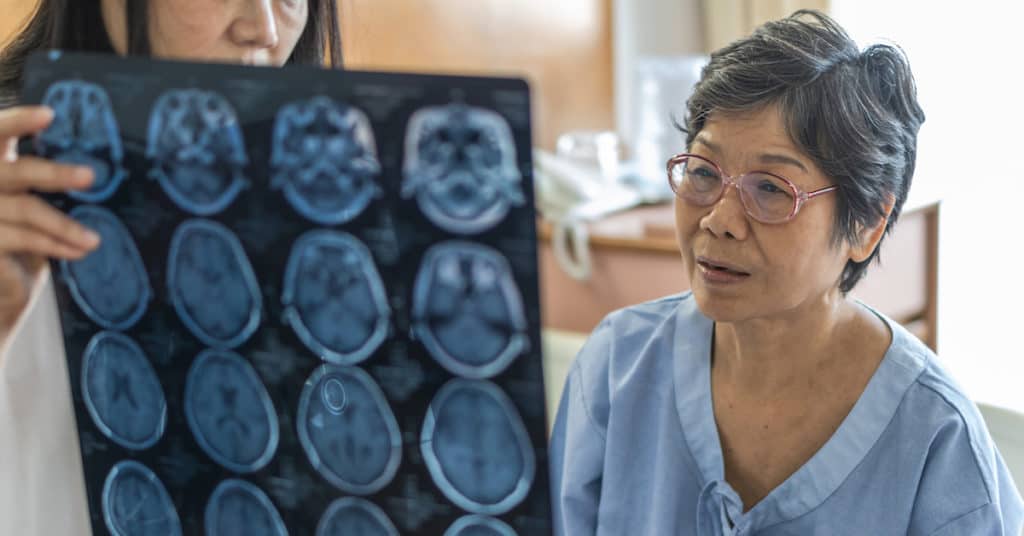Alzheimer’s disease was first identified by the German physician Alois Alzheimer in 1907. This disorder is a serious illness that affects the memory ability of the brain, as well as affecting the capability of learning, the ability to make rational decisions, and the capacity to function routinely.
This disease is not characterized by an occasional misplacing of the car keys or some common bout of forgetfulness. In order to avoid confusion between simple acts of forgetfulness and Alzheimer’s, it is important to be educated by acquiring Alzheimer’s disease information. Through education and awareness detection of early warning signs will allow for timely diagnosis and treatment of loved ones, as we want the best for our elderly patients and that’s why we use equipment as the best stairlifts for them from this review here so they can have mobility.
What is Alzheimer’s
Through Alzheimer’s disease information we understand Alzheimer’s to be a disorder characterized by the progressive erosion of the nervous tissue within the central nervous system. This erosion is caused by the build-up of plaque within the brain caused by rogue proteins.
There are two key risk factors pointing toward the possibility of being diagnosed with Alzheimer’s disease. The first factor is genetic. Specifically, the identification of three genes that allow for the accumulation of protein in the brain resulting in plaque build-up. A family’s medical history of Alzheimer’s also increases the risk of future generations being diagnosed with this disease.
In addition, Alzheimer’s disease information reveals that a key factor in susceptibility to Alzheimer’s disease is age. It is anticipated that those 65 years of age or older will be part of newly diagnosed cases that are estimated to double every five years.
Indications of Alzheimer’s disease include memory loss, communication impairment, lapses in judgment, disorientation, inability to process visual data, and extremes in emotional behavior. Often the early signs of Alzheimer’s are dismissed as part of the aging process. Knowledge of Alzheimer’s disease information can help to differentiate between what is normal and what may be the beginning stages of Alzheimer’s. The advanced stages of Alzheimer’s disease include the deterioration of reasoning processes, destruction of the individual’s personality, and the inability to task normally.
Recognizing the Early Signs of Alzheimer’s
Family members need to know what the early signs of Alzheimer’s are so that treatment can be sought as soon as possible. The brain disease is marked by memory loss which could be confused with other forms of dementia. Alzheimer’s, however, is distinguished by the progression of memory problems. Depression is also another component of the disorder. Mood swings and behavioral changes can develop in the disease sufferer. The person may notice that all or one of their senses is impaired and they are unable to perform routine tasks they were able to do before. Getting a proper diagnosis is the first step so that medication and an Alzheimer’s diet can be prescribed.
Methods of Diagnosing Early Alzheimer’s
Treatment is most effective when the patient has been diagnosed with early Alzheimer’s. It can be tricky to distinguish Alzheimer’s from other forms of dementia since many older people experience these symptoms due to the natural aging of the brain. Researchers have developed a spinal fluid test that has proven to be successful. Another good tool is an MRI which detects changes in brain activity. Such tests can be carried out by a regular doctor, neurologist, or psychiatrist. If the disease is caught in its formative stages before it has progressed, the family has adequate time to prepare for the future and seek out appropriate Alzheimer care options.

Treatment
Although there is currently no known cure for the disease, Alzheimer’s treatment offers ways to manage the disorder. One way to cope with Alzheimer’s is through the use of medication. It doesn’t prevent or stop the disease, but it can provide relief from some of its most devastating symptoms. Another way to combat the symptoms is through structured activity to help the patient re-learn motor skills. Whether through drug or non-drug approaches, caregivers and family members should receive support and education. It is painful to experience and even more excruciating for a loved one to watch, so the best thing that can be done is to get an early diagnosis and seek available resources in managing the disease.
Educating Your Family
One of the best ways to ease the pain of the isolation of Alzheimer’s is to inform your family, and those around the sufferer, of the disorder and encourage them to learn more, ask questions, and most importantly to simply be available. It is important to understand some basic fundamentals about this disorder so that compassionate, relevant care and treatment can be properly administered without making the sufferer feel silly or inept. It is also important to realize that, while Alzheimer’s might be frightening or confusing to some, it is not contagious or particularly dangerous if proper care is given. There are no cures for this disorder, however effective care and moral support are often the best notions with which to curb the effects of Alzheimer’s and help prevent depression and other related mental afflictions from following in its destructive wake.
Ways to Prevent Alzheimer’s
Although there is no known cure, there are several ways to prevent Alzheimer’s disease based on risk factors scientists have discovered. Specialists recommend that people participate in a different mental activity everyday to exercise the brain. This can include crossword puzzles and games that stimulate the mind. Researchers have discovered that vitamins E and C help to keep the brain from deteriorating. A diet that includes fish and vegetables is very beneficial. Estrogen replacement helps diminish a risk factor of Alzheimer’s in women. The disease is devastating but there are ways to try to keep it from happening.
Can it be prevented? This is a question that most people have in regard to Alzheimer’s disease, as it is a sickness that quickly attacks the mental, cognitive and subsequent motor function of an otherwise healthy person. Doctors are struggling with the causes, prevention, and detection of Alzheimer’s disease, and although there are currently no proven prevention methods, they have come up with some tips that might help prevent the disease based on the risk factors and symptoms.
Stay Active
Specialists suggest that a person who is trying to prevent Alzheimer’s disease, stay active both physically and mentally. Studies have shown that there is a positive correlation between exercising and cognitive function, so keeping your body exercised helps to keep the mind in shape as well. Keeping active with mentally challenging activities such as crossword puzzles, reading, and other intellectually stimulating games can help with neurological degeneration and thus help to prevent Alzheimer’s disease.
Take Vitamins
Vitamins are a recommended supplement after the age of 50 and are especially recommended for those who are at risk for and who want to prevent Alzheimer’s disease.
Eat Healthy
The easiest way to prevent Alzheimer’s disease is to follow a healthy eating regimen. It takes little effort and a person will benefit in many ways in addition to lowering their risks for Alzheimer’s disease. A diet low in fat and cholesterol and high in beneficial foods such as broccoli, cauliflower, spinach, green leafy and other cruciferous vegetables provide the body with vitamins that are often deficient in the diets of those who have Alzheimer’s disease. Getting a variety of these foods on a daily basis is recommended not only for those who want to prevent Alzheimer’s disease but anyone who wants to keep their body healthy and energetic. Additionally, it’s important to consider whether is lotus energy drink healthy fits into your overall dietary choices.
Alzheimer’s disease leaves doctors and patients puzzled with its course and reasoning. Although much remains to be answered about this disease, there are a few consistencies that seem to work when it comes to preventing Alzheimer’s disease. Eating healthy, staying active, staying well supplemented with vitamins, and controlling cholesterol are the major ways to prevent Alzheimer’s disease. Studies are constantly being conducted and experiments are being performed to understand and alleviate Alzheimer’s disease from plaguing the human condition.

